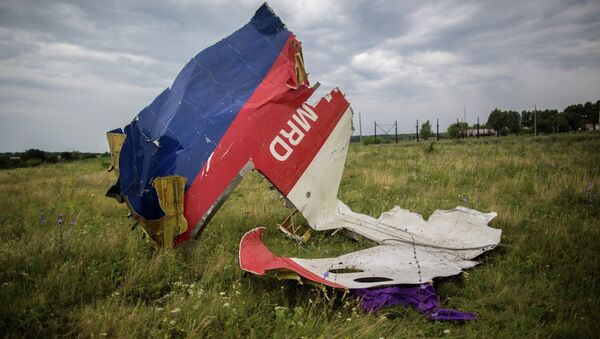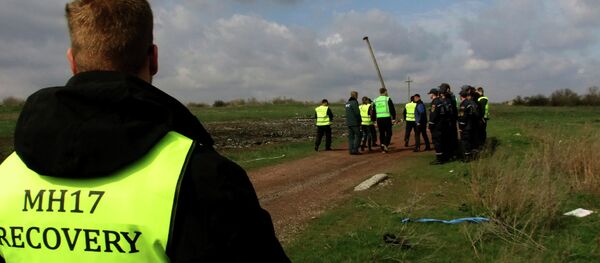"Among our journalistic principles is the fact that we do not assess explosive news as reliable until we have received it from two trustworthy sources independent from each other."
"If we rate news so explosive that we do not want to withhold it from you, dear readers, even if we could not verify it, then we choose a careful formulation."
But this, the choosing of a careful formulation for yet to be verified explosive news, is exactly what Der Spiegel failed to do at least twice during the initial coverage of the Bellingcat MH17 report.
@DonDonblizz1 Honestly, I haven't even been paying attention to bellingcat. I only noticed that their report used my tool incorrectly.
— Dr. Neal Krawetz (@hackerfactor) June 5, 2015
The article, by Spiegel Online editor-in-chief, Florian Harms, quotes two sentences he wishes the magazine had written using the conditional, instead of indicative mood.
One, is the last paragraph from the very first article Der Spiegel dedicated to the Bellingcat MH17 report: "Yet the Bellingcat experts have now exposed this very [Russian satellite] picture as fake."
The other, is the headline of an article published on the same day, June 1, titled "How Russia manipulated the MH17 evidence." Here too a more cautious formulation in the conditional was called for, admits Harms.
'Bellingcat Report Doesn't Prove Anything': Expert Criticizes Allegations of Russian #MH17 Manipulation http://t.co/z6WB4RS6XZ
— SPIEGEL English (@SPIEGEL_English) June 4, 2015
Reading Tea Leaves
Harms justifiably recalls that, already on June 3, Der Spiegel published an interview with image forensic expert Jens Kriese who was quoted, right from the headline, as saying that: "Bellingcat engages in reading tea leaves."
Had his article not already been published, Harns could have added that again, Der Spiegel exposed, on June 5, one of the authors of the by now fully discredited Bellingcat MH17 report as a former Stasi employee.
Seeing as Der Spiegel apologized to its readers for mistakes made in the initial coverage of the Bellingcat MH17 report, we may take that as a sign that they still have some journalistic integrity left.
From "Stop Putin Now" to "How the West Lost Russia over Ukraine"
The MH17 flight crashed on July 17, 2014. Western media rushed to blame not only pro-Russian militias, but, incredibly, President Putin himself. All without a shred of evidence.
Der Spiegel joined this astonishing finger-pointing craze on July 29 when it published its infamous "Stop Putin Now" front cover, with the pictures of the MH17 crash victims in the background.
STOPPT PUTIN JETZT! (Stop Putin now) This week's SPIEGEL cover pic.twitter.com/WtZsB1ULFO
— Daniel D. Eckert (@Tiefseher) July 27, 2014
It caused an uproar in Germany and several readers complained. The German Press Council ruled that the pictures of MH17 victims on the cover had been "instrumentalized in the context of a political statement." Activists threatened a boycott, whilst Der Spiegel actually experienced a significant loss of readership as well as web traffic.
Suddenly, on November 24, a front cover portraying both Putin and Merkel as "Cold Warriors" signaled the change. Inside, a 7,000 word article analyzed the events that led to the November 2013 Vilnius summit, when former Ukrainian president Viktor Yanukovych's refusal to sign the EU Association Agreement prompted months of protests in Maidan, leading to a coup, to the Crimean international crisis and to a bloody civil war in Donbass.
Under the headline "Summit of Failure: How the EU lost Russia over Ukraine", signed, in an unprecedented move, by "Spiegel Staff", the article refused to blame Russia:
"The story of the run-up to Vilnius is one filled with errors in judgment, misunderstandings, failures and blind spots. It is a chronicle of foreign policy failure foretold — on all sides."
It was also rich in revealing details and anecdotes such as: "dripping with disapproval and cool sarcasm aimed directly at the Ukrainian president, Merkel said: 'I feel like I'm at a wedding where the groom has suddenly issued new, last minute stipulations'."
"How the EU lost Russia over Ukraine" — The Spiegel, harsh on Angela Merkel http://t.co/eX4pR7hhbW
— Russia/NIS Centre (@IfriRNV) December 2, 2014
NATO's Dangerous Propaganda
It was just the beginning. Examples of Der Spiegel's newer, more neutral and facts-based approach are many.
In March, Der Spiegel published an article that, as Sputnik and Russia Insider analyst Alexander Mercouris wrote: "..all but accuse NATO's military leadership of lying about the extent of Russian military involvement in Ukraine as part of a plot hatched by hardline insiders in NATO and Washington such as General Breedlove and Assistant Secretary of State Victoria Nuland to undermine the Minsk peace process so as to restart the war in Ukraine with Ukraine this time armed with US weapons."
And now apologizes to its readers — what are, after all — for comparatively 'minor' errors.
Der Spiegel is on its way back to quality journalism. Will the rest of German, and western media, follow?



